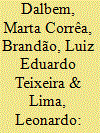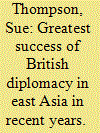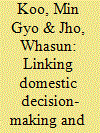|
|
|
Sort Order |
|
|
|
Items / Page
|
|
|
|
|
|
|
| Srl | Item |
| 1 |
ID:
127911


|
|
|
|
|
| Publication |
2014.
|
| Summary/Abstract |
Wind energy has been negotiated in Brazil's regulated market through auctions organized by the government. Bilateral negotiations in the free market have been scarce. In 2011 wind farms were allowed to bid in 'A minus 5 (A?5)' auctions, for energy with first delivery date 5 years ahead. This new design was expected to stimulate negotiations in the free market, as the 20-year contract in the regulated market eases financing while the 5-year grace period grants wind farms the option to sell whatever energy is generated beforehand in the free market. We modeled bidders' price decision in A?5 auctions as Real Options and concluded that given the low prices averaging USD 50/MW h, winners are tempted to defer investment, expecting more favorable equipment and energy prices, or a better knowledge of the wind site. Construction is likely to begin in 2-3 years, with little time left for the free market. Bidders that consider the option of eventually abandoning the project are more price competitive, increasing chances that some wind farms will never materialize. Therefore, this attempt to foster the free market may not pay-off and, moreover, it may have the unfavorable effect of turning Brazil's energy expansion planning a more difficult task.
|
|
|
|
|
|
|
|
|
|
|
|
|
|
|
|
| 2 |
ID:
132414


|
|
|
|
|
| Publication |
2014.
|
| Summary/Abstract |
Arthur de la Mare, an under-secretary of state at the British Foreign Office, wrote in 1967 that the ending of the Malaysia-Indonesia Confrontation of 1963-1966 was "the greatest success of British diplomacy in East Asia in recent years." However, historians generally believe British influence in the process to end this conflict was extremely limited, as it has been widely accepted that this conflict ended through bilateral negotiations between Jakarta and Kuala Lumpur. On one level, this view is accurate, but "Confrontation" took months to end and, during this process, British, American, and Malaysian officials hoped to encourage a change in leadership in Jakarta and an eventual end to the conflict. Confrontation was an anti-colonial and a regional dispute greatly affected by the Cold War environment in Southeast Asia and, therefore, not immune from international events or actors, especially the final phase of the conflict
|
|
|
|
|
|
|
|
|
|
|
|
|
|
|
|
| 3 |
ID:
118948


|
|
|
|
|
| Publication |
2013.
|
| Summary/Abstract |
We develop an expanded two-level game analysis of trade negotiations between South Korea and the United States, with an emphasis on the important cases of beef and automobiles. The theoretical background of this study is that the chief negotiator is not always an honest agent with no independent motive. We find that small perceived win-sets during the beef and automobile negotiations in the 1990s created problems at the negotiation stage (as already predicted by Putnam), while large perceived win-sets during the Korea-US free trade agreement (KORUS FTA) negotiations produced unexpected, but eventually resolved, problems at the ratification stage. Our analysis shows when and why larger perceived win-sets emerge in spite of the greater risk of failed ratification. During their bilateral negotiations in the 1990s, trade negotiators' autonomy, both in South Korea and in the United States, was institutionally weak, and their policy ideas were subordinated to mercantilism or fair-trade ideas, thus creating small perceived win-sets. By contrast, the empowerment of the Office of the Minister for Trade in South Korea after 2004 and the provision of trade promotion authority in 2002 to the US Trade Representative institutionally strengthened chief negotiators' autonomy vis-à-vis KORUS FTA negotiations, thus producing large perceived win-sets. During this period, the chief negotiators' autonomy, combined with their free-trade ideas, as well as with their own institutional interests, made the domestic constituency's win-set as perceived by chief negotiators larger than a Putnam's two-level game analysis would have predicted. The ratification of the KORUS FTA, albeit prolonged much longer than anyone expected, illustrates that the chief negotiators did not 'incorrectly' perceive their win-sets to be larger than they actually were.
|
|
|
|
|
|
|
|
|
|
|
|
|
|
|
|
|
|
|
|
|